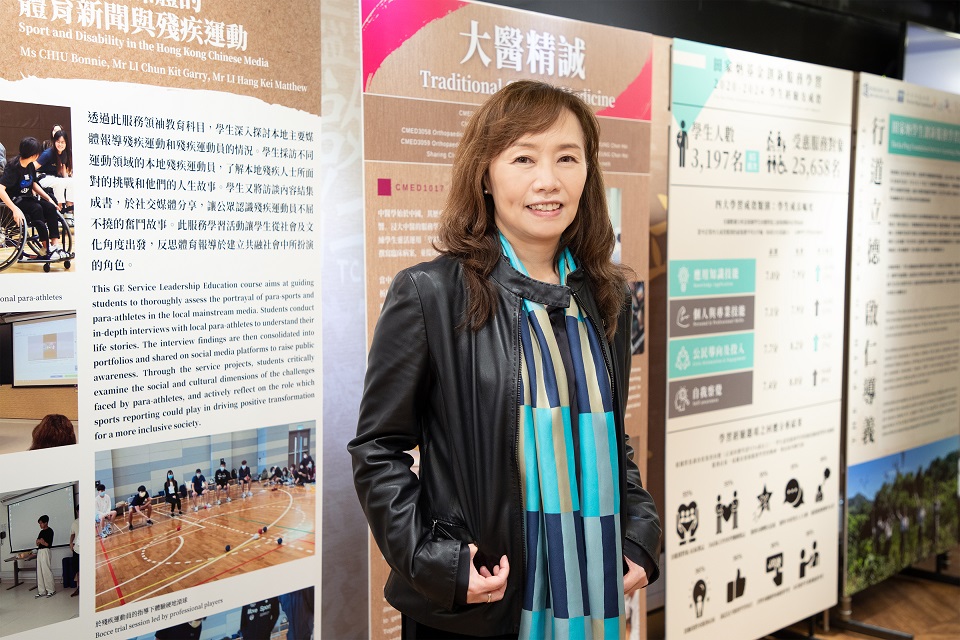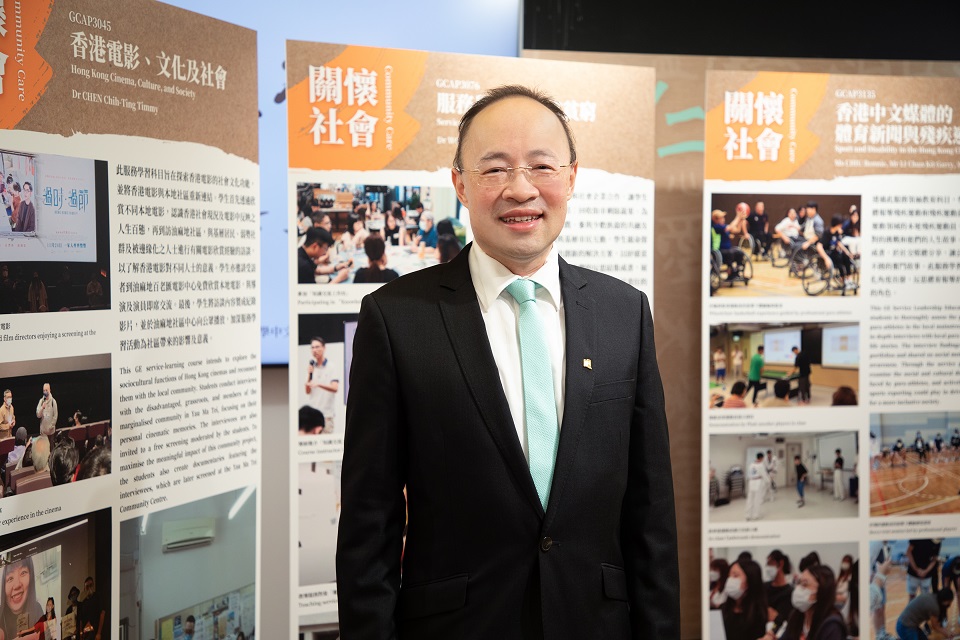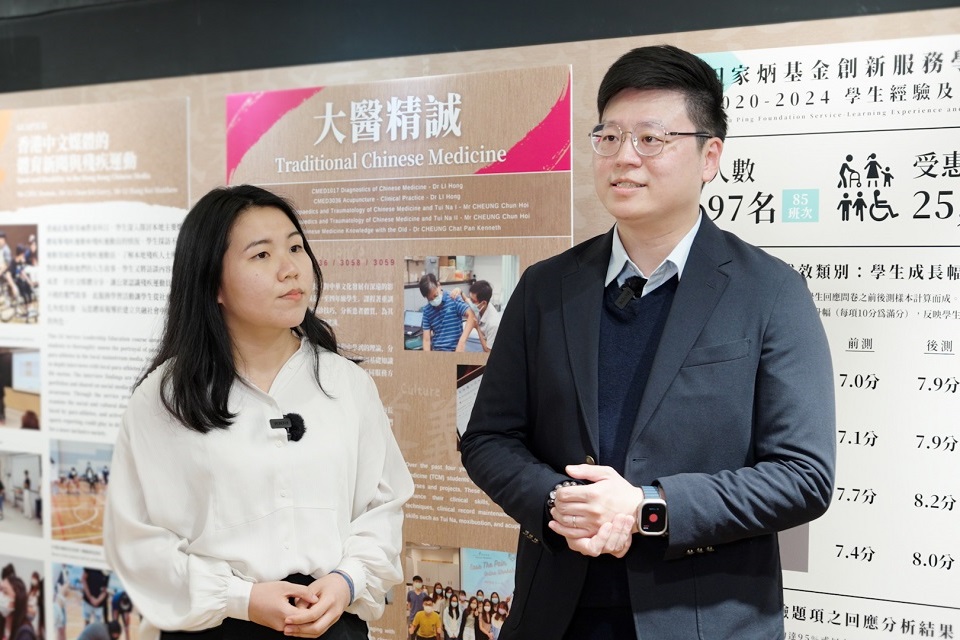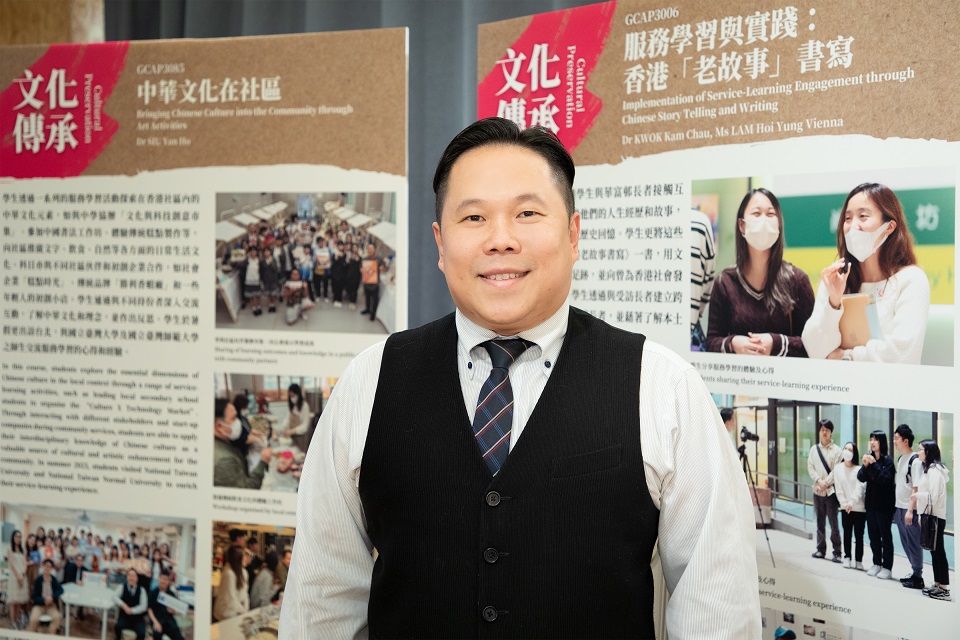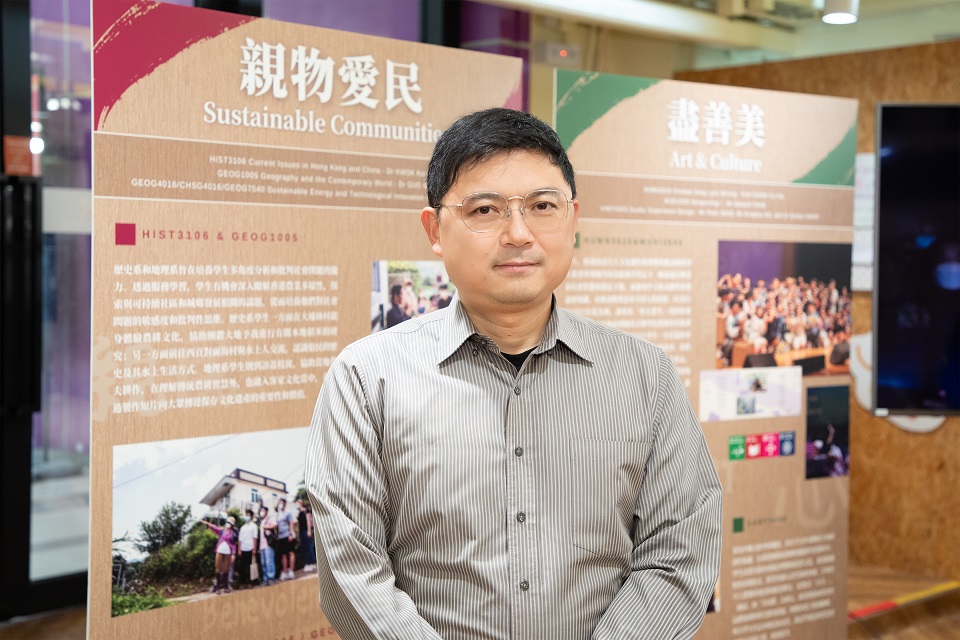Discover HKBU
Enhancing students’ growth and the common good through service-learning
29 Feb 2024
Telling the unique stories of individuals from the community through poignant lyrics. Delivering education workshops for primary students in the Mainland about renewable energy sources. Creating innovative videos of historic landmarks to highlight the importance of history education and heritage preservation.
These are but some of the examples of service-learning initiatives at HKBU. An important component of the University’s whole-person education, service-learning connects academic study with real-world experiences, while also providing students with the opportunity to engage in meaningful community service.
The exhibition “The Path to Benevolence: Tin Ka Ping Foundation Service-Learning Showcase” opened in early February at TriAngle, the on-campus co-working space. Co-hosted by the Centre for Innovative Service-Learning (CISL) and General Education Office (GEO) at HKBU, as well as the Tin Ka Ping Foundation (the Foundation), the exhibition highlighted the service-learning courses funded by the Foundation as well as the positive impact of service-learning on students’ learning experiences and the community. From 2020 to 2024, the University offered a total of 85 service-learning courses with around 3,200 student enrolments, serving over 25,600 people in need.
At the exhibition’s opening event, Dr Albert Chau, Vice-President (Teaching and Learning) and Acting Dean of Arts, touched on the importance of enriching students’ learning experiences and increasing their connection with society. He said: “HKBU has implemented service-learning to empower students to turn their ideas and the knowledge they have acquired into practical solutions that can address real-life issues. Students can in turn develop their own aspirations for the community.”
Dr Yuen Pong-yiu, Director of the Tin Ka Ping Foundation, presented the organisation’s history and its mission in supporting the development of education. He mentioned that Dr Tin Ka Ping often used the phrase “Establish oneself and establish others” (己立立人), and this principle has guided the Foundation’s work, particularly in its support to service-learning initiatives among the publicly-funded universities in Hong Kong.
Dr Lisa Lam, Director of CISL, thanked the Foundation for their contribution to HKBU over the years. “This exhibition highlights the diversity of our service-learning experiences. Through collaborating with different faculty members and community partners, we have launched different courses and projects related to topics covering traditional Chinese medicine, well-being and technology, art and culture, sustainable communities, and understanding China,” she said.
HKBU also offers a series of transdisciplinary General Education Capstone courses with service-learning components. “These courses bridge transdisciplinary knowledge with experiential learning, enabling students to explore and apply what they have learnt in the classroom through community engagement,” said Professor Chiu Sung-nok, Director of GEO. He also introduced attendees to the capstone courses under the themes of “community care” and “cultural preservation”.
At the opening event, two HKBU faculty members shared their teaching experiences and educational outcomes from their respective service-learning courses. As the Associate Director of the Clinical Division at the School of Chinese Medicine, Mr Cheung Chun-hoi led students to provide tailored health advice and Tui Na treatment to help relieve the patients’ pain issues. He emphasised that students should not only learn how to deliver Chinese medicine treatment to patients, but also be a good healthcare professional who knows how to step into the patients’ shoes. Dr Siu Yan-ho, Lecturer I of the Department of Chinese Language and Literature, presented the course “Bringing Chinese Culture into the Community through Art Activities”, which provided students with a capstone experience to explore different facets of Chinese culture.
In addition, students can gain a new awareness of community issues. Dr Kwok Kam-chau, Lecturer I of the Department of History, designed a course focusing on agricultural diversity and sustainable communities. “Students conducted oral history interviews with local farmers. They also made use of research skills to collect historical documents about the agricultural history of Hong Kong, and analysed social issues such as rural-urban development,” said Dr Kwok.
Dr Jin Yucheng, Research Assistant Professor of the Department of Computer Science, pointed out that taking part in service-learning helps students develop more empathy and compassion towards others. In his course “Human-Computer Interaction”, students designed user-friendly digital applications that can improve the accessibility of health information to the elderly. The course not only helped strengthen the dialogue between different generations, but it also enabled the students to integrate transdisciplinary knowledge into developing innovative solutions.
For more information on service-learning at HKBU, please visit: https://cisl.hkbu.edu.hk/service-learning.html
